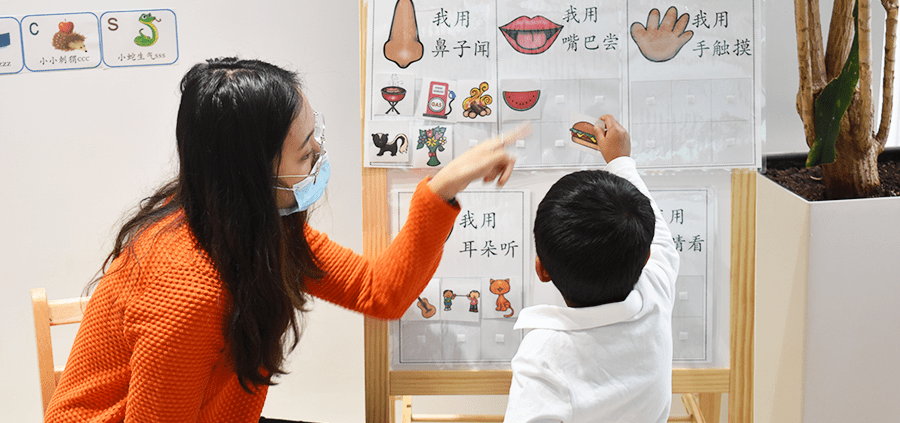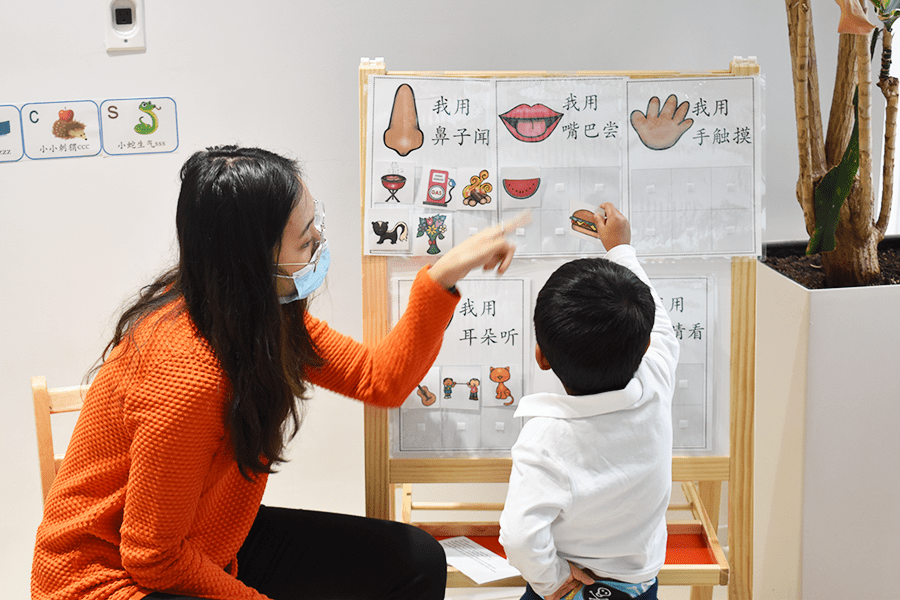Learning Mandarin at Tessa International School
When you step into our Mandarin class, you’ll find our young students speaking with each other or singing songs in Chinese. Tessa’s unique language program begins in Preschool with an 80% immersion in the target language, ensuring students develop second language proficiency by the end of primary school. Teachers also collaborate closely across disciplines to deliver a cohesive curriculum that celebrates the culture behind the language.
Our curriculum has the same core objectives in every language program, however, each language has its own unique benefits.
Benefits of Learning Mandarin
Develop Accurate Hearing and Interpretation of Sounds
Learning tonal languages is easier for children, who are sensitive to the differences in sounds. The younger a child begins learning, the more accurately they can replicate these sounds. Furthermore, this familiarity with tones and sounds actually helps cultivate musical ability in children. A study at the University of California in San Diego found a strong correlation between fluency in a tonal language, and the development of perfect pitch. Perfect pitch is indicative of certain advanced cortical processes. So not only does Mandarin potentially benefit the brain, it potentially makes the child a better singer!
Better Interpretation of Symbols
Since Mandarin writing relies on thousands of character, learners of Mandarin Chinese have to read and interpret a vast number of visual symbols, activating more regions of the brain than English, which relies on a phonetic alphabet. Through learning Mandarin, children can become more adept at visual communication, more readily interpreting symbols in visual art and understanding nuances in symbolism and visual communication.
Improved Hand-Eye Coordination
While most Western languages are written in one direction, the act of writing Mandarin characters requires brush or pen strokes in multiple directions, with differentiating hand pressure. Writing in this way has been shown to improve fine motor skills and spatial recognition in children.
Stronger Math Skills
Yes, there is actually a scientific correlation between learning Mandarin and improved mathematical ability. Scientists theorize that because Mandarin representation of numbers is less abstract than Arabic numbers, and because the act of practicing handwriting requires repeated counting, young children gain greater familiarity with math and with numeric thinking. In learning Mandarin, the mathematical concepts are integral to the language fluency, and not a separate subject activating a different part of the brain.
Because Mandarin Chinese involves learning language, sounds, drawing, and math all at once, it activates more regions of the brain and improves cognitive development overall, even in adults. In fact, speakers of Mandarin use more of their brain more of the time, unlike English speakers who tend to alternate between left and right hemispheres. In theory, this more balanced brain could lead to greater overall creativity, enhanced problem-solving, and increased emotional intelligence.
Multiple Languages and Cultures at Tessa
Languages, their specificities and cultural awareness are gifts that will last them a lifetime.
At Tessa, it is exciting to watch students build fluency as they progress through academic material. We encourage you to watch this video below to see our Mandarin students in action!
Our students not only are receiving a bilingual education, but are being immersed in multiple cultures. As we have 3 language tracks, children see and hear the cultures of nations that speak Mandarin, Spanish and French. We consider our immersion curriculum to be a passport for our students, one that will open up new worlds, friendships and ways of thinking as they grow up and adapt to an ever-changing world.
With all these benefits for the mind and brain, Mandarin language learning for children is sure to be an asset for their whole life, regardless of their eventual interests or profession. Get them started today!


















